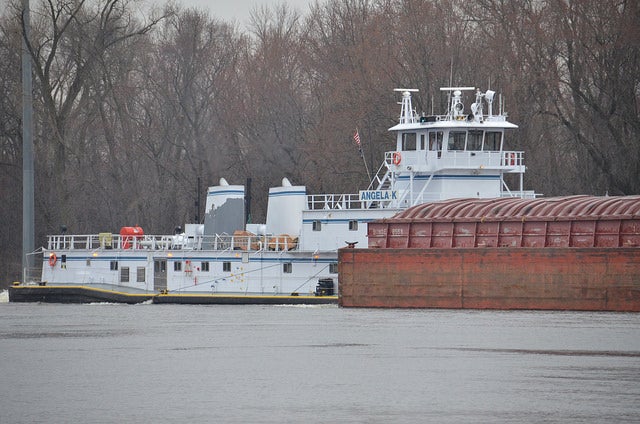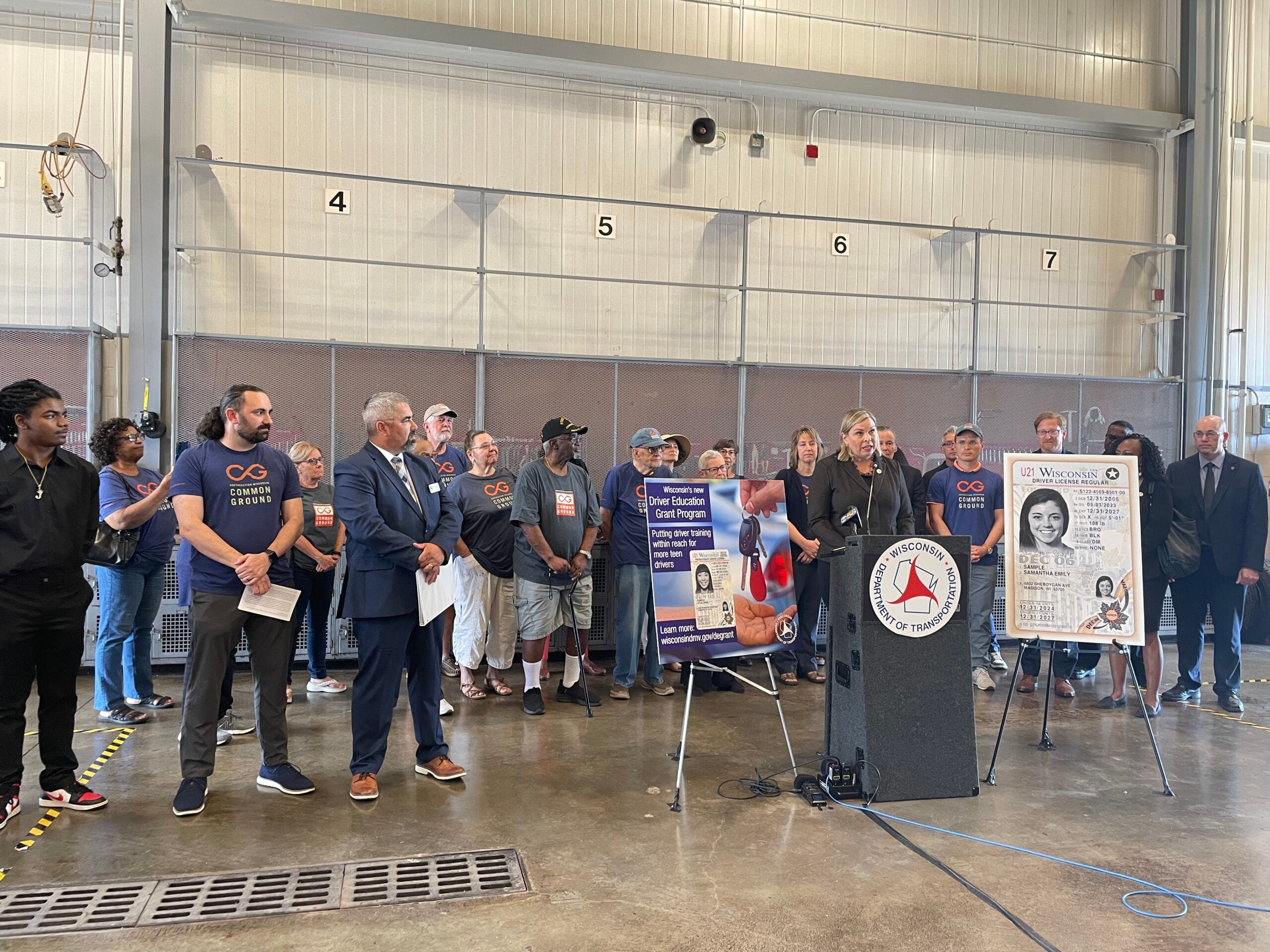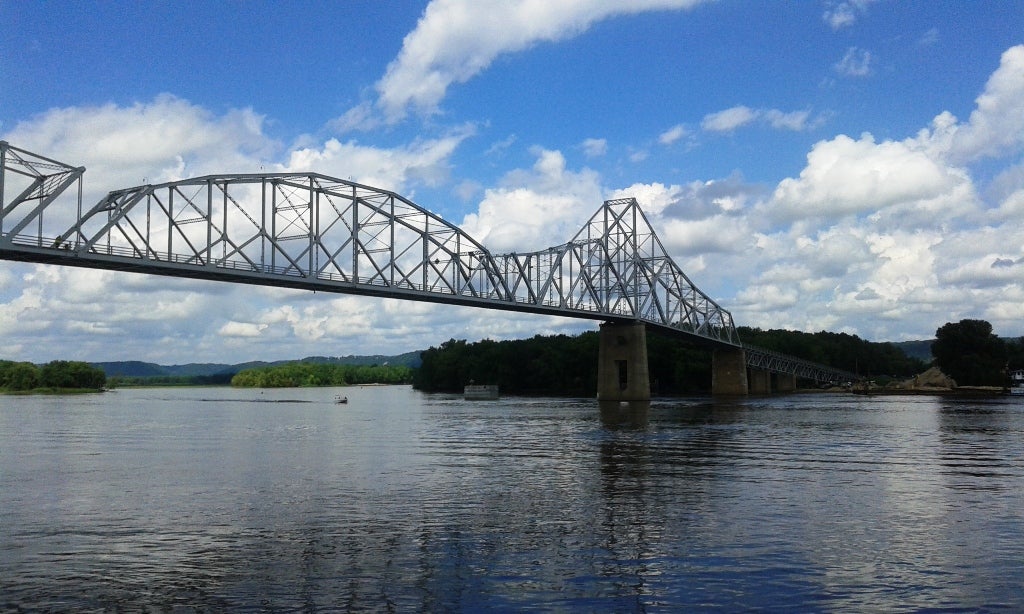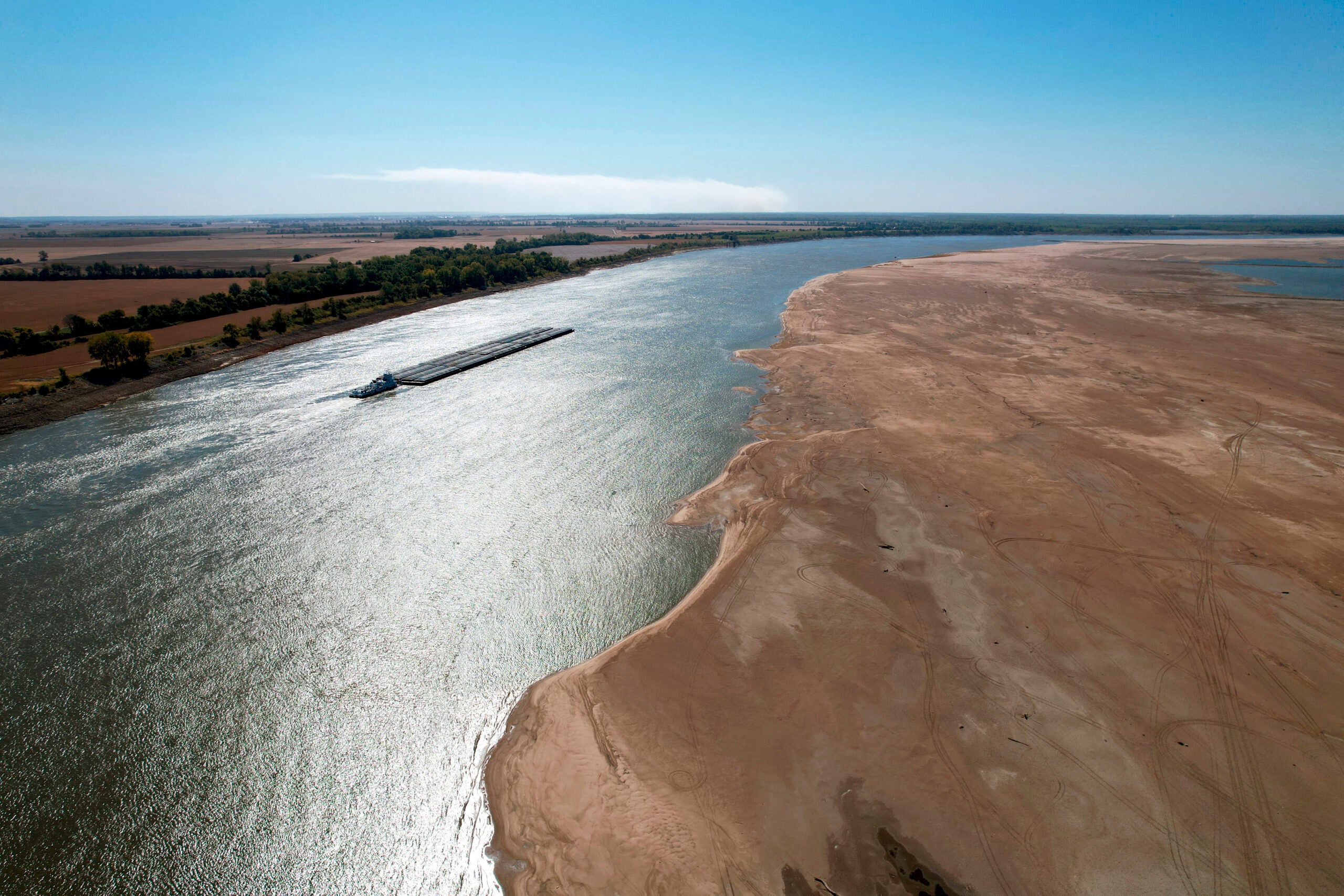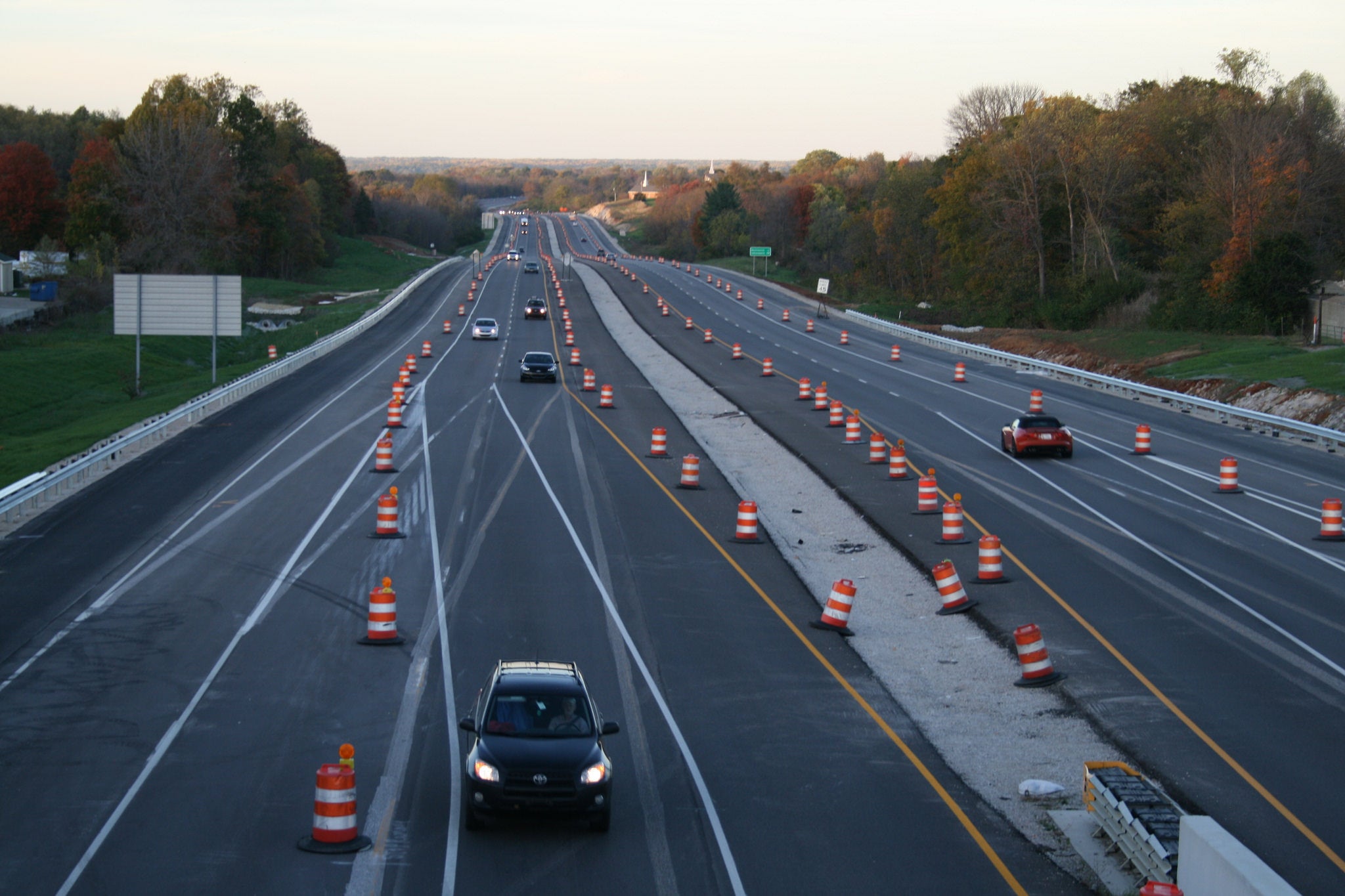A new report shows Wisconsin and other states along the Upper Mississippi River could see millions of dollars in road damage if the lock and dam system above St. Louis shut down for a year.
Ernie Perry, program administrator for the Mid-America Freight Coalition in Madison and co-author of the study, estimated moving agricultural commodities by truck rather than barge would mean an extra 54,388 trucks on roads each month of the nine-month navigation period.
That could cause about $28.8 million in damages to the region’s roads and add 212,464 tons of carbon dioxide to the atmosphere.
News with a little more humanity
WPR’s “Wisconsin Today” newsletter keeps you connected to the state you love without feeling overwhelmed. No paywall. No agenda. No corporate filter.
“To not take care of one part of the system and have it go down, in this case the Mississippi River moving agricultural products, is very costly to the next system that absorbs all of that traffic,” Perry said.
Perry said his organization wanted to look at the impact on truck traffic when the oil boom began a few years ago in North Dakota. With the increased rail traffic, they were worried companies wouldn’t be able to get space on freight trains if the locks and dams shut down.
But increased traffic and road repairs aren’t the only ways the public would be affected.
“They’re also going to feel it in their pocket books,” said Kirsten Mickelsen, executive director of the Upper Mississippi River Basin Association.
Mickelsen said shipping other heavy materials like road salt or gravel by barge keeps consumer costs low.
“There will be less discretionary spending available for municipalities to be able to spend it on that road safety issue or for people purchasing gravel for their homes and businesses,” Mickelsen said.
Perry said the need to move freight efficiently will become more important as the population grows.
“All of the (transportation) systems are stressed right now. We’ve got such tremendous freight movement going on,” Perry said.
With more than $1 billion in backlogged maintenance of the locks and dams, Perry said a shut down of the system is a real possibility unless new investments are made.
Mickelsen said she’s optimistic federal officials will allocate more money for the system in infrastructure investment plans. But she said some industries are losing faith the lock and dam system will see improvements.
“If the perception of reliability of the navigation system goes down, you may not have as much use and that diverting to land-based transportation may already start to happen. It may already be starting to happen,” Mickelsen said.
The University of Wisconsin-Madison, Mid-America Freight Coalition, and the National Center for Freight and Infrastructure Research and Education were involved in the study.
Wisconsin Public Radio, © Copyright 2026, Board of Regents of the University of Wisconsin System and Wisconsin Educational Communications Board.

